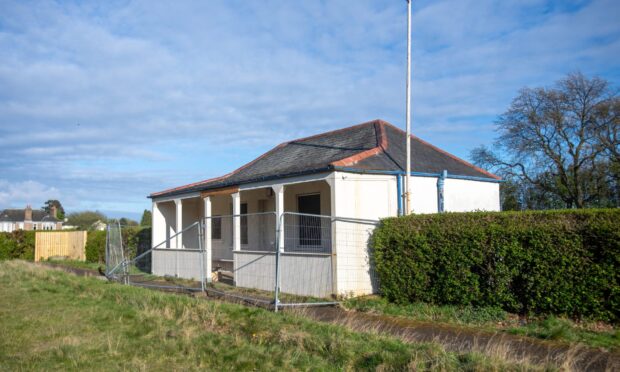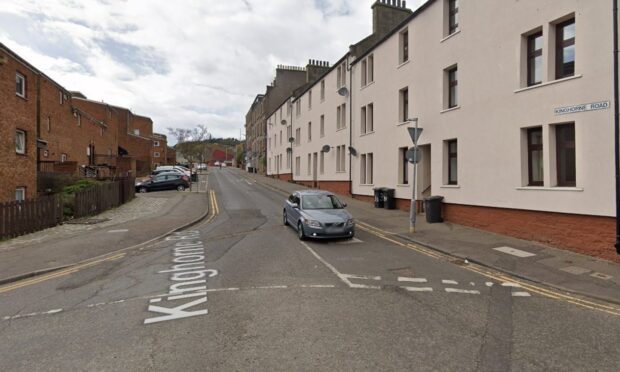Elderly patients have been left in a run down Dundee hospital ward for a year after health bosses failed to act on a plan to maintain it.
Inspectors have criticised the “poor state of repair” of the Royal Victoria Hospital ward following an unannounced inspection in July this year.
The inspection focused on safety and cleanliness and the care of older people in hospital, with consideration for the additional risks to patients during the Covid-19 pandemic.
The inspectors found a part of Ward 7 to be in such a poor condition that it was “unable to be effectively decontaminated”.
The Healthcare Improvement Scotland team found holes in walls at patient bed spaces, damage to the wooden sills behind the clinical hand wash basins and wooden handrails with varnish worn off.
Inspectors noted, in a report published on Tuesday that an infection prevention and control team had identified the issues during an annual audit in June 2019.
Estates workers completed an action plan to repair the ward but “did not progress with the works,” the report notes.
The inspectors looked at three wards dedicated to medicine for the elderly, including Ward 7 where the problems were found, and one stroke ward.
Ian Smith, head of quality of care at Healthcare Improvement Scotland, said: “During our inspection we found the cleanliness of the environment appeared to be generally good and the majority of patient equipment was found to be clean.
“However, parts of one ward in particular were found to be in a poor state of repair. This issue was not reflected in the infection control audit which is carried out regularly in order to provide assurance of ward cleanliness.
“NHS Tayside must ensure that the environment is effectively monitored and maintained to allow effective infection prevention and control.”
He said there were also issues with incomplete nutritional assessments and care plans.
“We also found that patients were treated with dignity and respect. However, we found issues with the completion of some documentation such as nutritional assessments and care plans.
“NHS Tayside must ensure that documentation is fully and accurately completed, and that patients have person-centred care plans in place for all identified care needs,” he added.
The inspection found three areas of good practice and six requirements for hospital managers to make improvements.
These included an instruction to improve handwashing routines after inspectors found some staff were not removing their gloves to wash their hands.
NHS Tayside and Dundee Health and Social Care Partnership released a joint statement in response to the inspection report.
A spokesman highlighted some of the inspectors positive findings, including increased patient access to physiotherapy and occupational therapy services and training for staff.
He said: “We welcome this report. We are pleased to see that inspectors noted that all patients were treated with dignity with staff addressing patients in a respectful attentive manner and all interactions seen were positive.
“Where areas have been identified for improvement, patients and their families should be reassured that we have already taken steps to address these through an Improvement Action Plan to ensure that the standards of care delivered meet the highest standards.”










